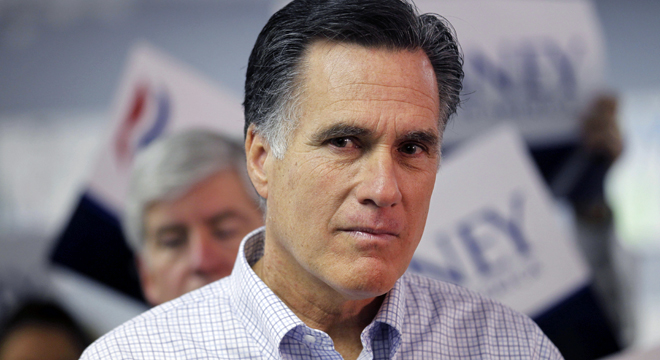By alleging that Mitt Romney effectively paid no federal taxes for 10 years, Harry Reid’s welcomed conservative scorn and managed to keep a story that’s unflattering to the GOP presidential candidate in the news.
But it also has tax experts and people who work in private equity musing about whether Romney could possibly have paid the federal government zero dollars on net over the last decade — and if not, how close he could’ve gotten.
For instance, a TPM reader posited that, under the terms of his retirement, Romney’s severance could have flowed directly into his tax exempt IRA, shielding it from taxation for years, and driving his effective rate down dramatically.
Tax experts TPM spoke with believe it’s a plausible strategy — but question whether he’d be able to whittle his effective tax rate down to zero.
To erase his federal tax liability this way Romney would’ve had to eschew other income sources, or figure out ways to zero out his effective tax rate on that income too.
That’s according to Ed Kleinbard, a tax law professor at the USC School of Law who earlier this year participated in a conference call organized by the DNC. He thinks the literal reading of Reid’s allegation is unlikely.
“We know that by 2010, he had lots of other income,” Kleinbard said. “[H]e had something like $20 million in other income…. What [the TPM reader] wrote may be true but it has nothing to do with the $20 million on the return in 2010.”
That year, Romney paid a nearly 14 percent effective rate on his taxes. But those numbers likely understate the degree to which Romney’s financial circumstances improved that year. It wouldn’t account for the appreciation of assets he decided not to sell in 2010, and if Bain bought company shares back from Romney’s IRA, that money wouldn’t show up anywhere.
“What’s in the IRA is invisible on the return,” Kleinbard says.
Other experts largely agree.
“[I]t struck me as plausible,” said NYU tax expert Daniel Shaviro, who’s been a leading analyst of Romney’s public financial information. “The reason people have been saying he must have paid something is that they’ve figured he must have (as in 2010) had some dividend and interest income plus other ordinary (rather than capital gains) stuff such as speaker fees. Zeroing all that out, if he had such income every year, would have required tax shelter losses that would very likely be deemed (by the IRS and many legal experts) as abusive.”
Shaviro also notes that if, using his IRA, Romney had avoided realizing capital gains on Bain shares, it would have helped him accomplish what’s known as “loss harvesting.” That’s when investors sell off financial losers to cancel out capital gains they’ve realized elsewhere in their portfolios. The lower one’s capital gains in any given year, the easier it is to harvest that loss.
We know Romney harvested losses because he carried forward a substantial capital loss in 2010. “[H]aving less capital gains to begin with via the Bain strategy from the TPM blog post would obviously make it easier to get to zero RE the capital gains,” Shaviro adds.
Another expert on tax strategies for high net worth individuals notes that unless Romney’s IRA were a Roth IRA — and it’s not — he will be required to pay taxes on that money as ordinary income whenever he ultimately draws on it.
For Kleinbard, all of this points to the problem with the standard measure of one’s effective federal tax rate — typically taxes paid divided by adjusted gross income. That measure doesn’t account for wealth accumulation or strategies wealthy people use to effectively reduce their own denominator.
“For people with lots of money, AGI actually understates their economic income,” Kleinbard says.
In other words, if the taxes Romney has paid were weighed against a broader measure of the growth of his fortune, his effective tax rate over the years would be much, much lower.










